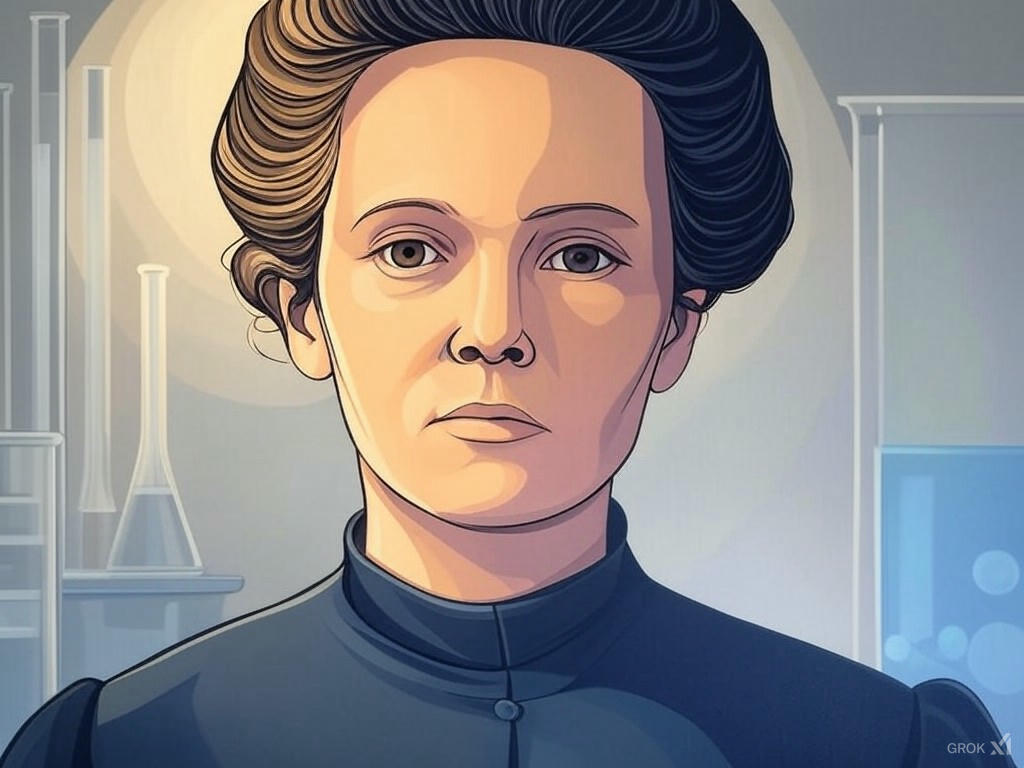Marie Curie is celebrated as one of history’s most brilliant scientists and is famously known for her discovery of radium and polonium. Her work in radioactivity opened doors for modern science, and her legacy as a trailblazer in physics and chemistry continues to inspire students and scientists today. If you’re preparing for a science fair, Marie Curie’s journey can offer you valuable lessons on how to create a winning project. Here’s how to channel her determination, curiosity, and approach to scientific discovery for your own science fair success.
Choose a Topic You’re Passionate About
Curie’s Insight:
Marie Curie was deeply curious about the natural world, particularly the mysterious “X-rays” that scientists were beginning to study in her time. She focused on radioactivity—a term she coined—and devoted her life to it.
Your Guide:
When choosing a science fair topic, pick something you’re genuinely interested in. Passion for your topic will fuel your research, help you stick with it through challenges, and make presenting it more exciting. Whether it’s environmental science, robotics, or biology, let your curiosity lead you to a topic you can explore with enthusiasm.
Embrace Perseverance and Hard Work
Curie’s Insight:
Marie Curie faced tremendous challenges as a woman in science, yet she didn’t let societal barriers or laboratory setbacks deter her. She conducted painstaking experiments, often facing difficult working conditions, but she kept moving forward.
Your Guide:
Science fair projects require commitment and patience. You’ll likely encounter setbacks, whether it’s an experiment that doesn’t go as planned or data that’s difficult to interpret. Follow Curie’s example by staying determined and putting in the necessary effort, even when the going gets tough. Challenges are part of the learning process and will make your final project even stronger.
Focus on Experimentation and Observations
Curie’s Insight:
Curie’s groundbreaking work involved meticulous experimentation and attention to detail. She didn’t rely on what was already known but was determined to investigate and observe radioactivity’s properties firsthand.
Your Guide:
Make experimentation the core of your science fair project. Design a method to test your hypothesis and observe your results carefully. Keeping detailed notes and organizing your data will help you draw accurate conclusions. Remember, your goal is to learn as much as possible about your topic, so approach your project with curiosity and a spirit of discovery.
Emphasize Originality in Your Project
Curie’s Insight:
Marie Curie wasn’t afraid to explore something new. Her research wasn’t just an extension of existing work; it broke new ground. She didn’t rely on established ideas—she pursued an original question.
Your Guide:
Science fairs reward originality, so think about what makes your project unique. Is there a new angle or perspective you can bring to your topic? It could be an innovative approach to a well-known problem, a new hypothesis, or an experiment with variables that haven’t been tested before. Aim to push boundaries and let your curiosity drive you to explore the unknown.
Present with Clarity and Confidence
Curie’s Insight:
While Curie was intensely focused on research, she also knew the importance of communicating her findings. She shared her results with other scientists, which eventually led to her becoming the first woman to win a Nobel Prize—and later, the only person to win Nobel Prizes in two different sciences.
Your Guide:
When presenting your project, be clear and confident. Organize your information logically, and explain your hypothesis, methods, results, and conclusion so that your audience can follow along easily. Practice explaining complex ideas in simple terms, and anticipate questions your judges might ask. Remember, confidence comes from thorough preparation and a deep understanding of your topic.
Believe in Your Potential
Curie’s Insight:
Despite the odds stacked against her, Marie Curie believed in her abilities and her mission. Her resilience and self-belief pushed her through countless obstacles, leading her to historic scientific achievements.
Your Guide:
Approach your science fair with a sense of purpose and belief in your abilities. Even if your project doesn’t go perfectly, every step of the scientific process is a learning experience. Believe in your potential to make a valuable contribution to science, however big or small.
Final Thoughts
Marie Curie’s journey is a testament to the power of curiosity, hard work, and resilience. By taking inspiration from her approach, you can not only create a standout science fair project but also develop skills that will benefit you throughout your academic and scientific pursuits.
So as you prepare, remember to stay curious, work hard, and let your love of discovery drive your efforts. After all, science is about exploration—and, as Curie herself showed us, even the smallest discoveries can lead to groundbreaking achievements.
